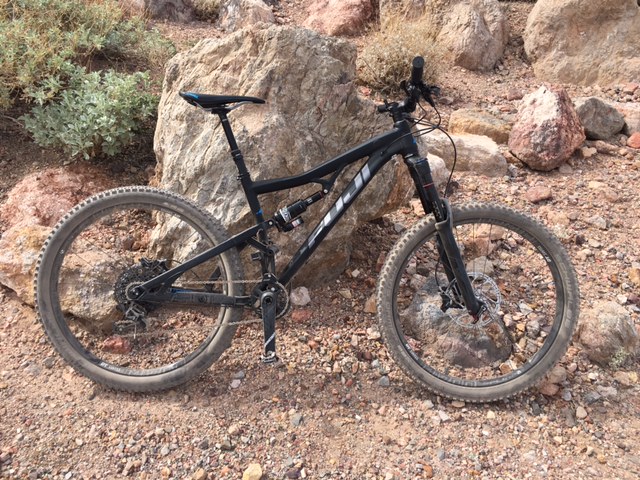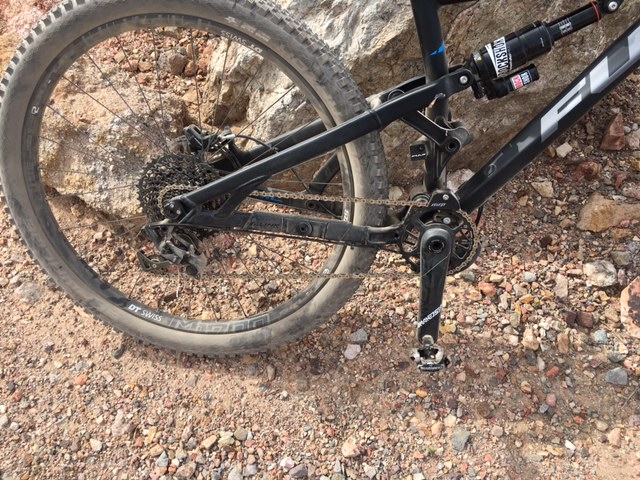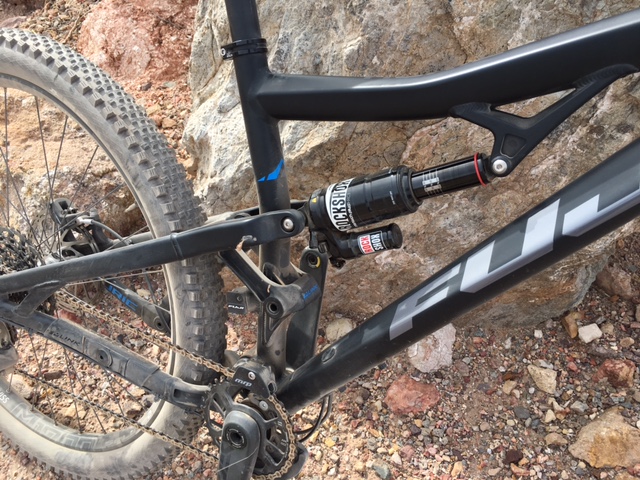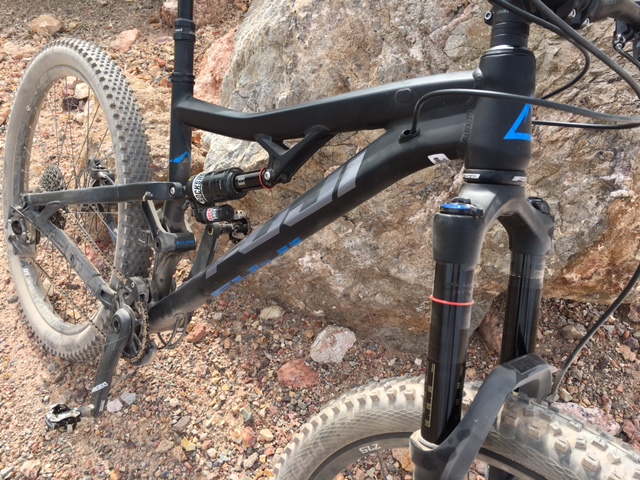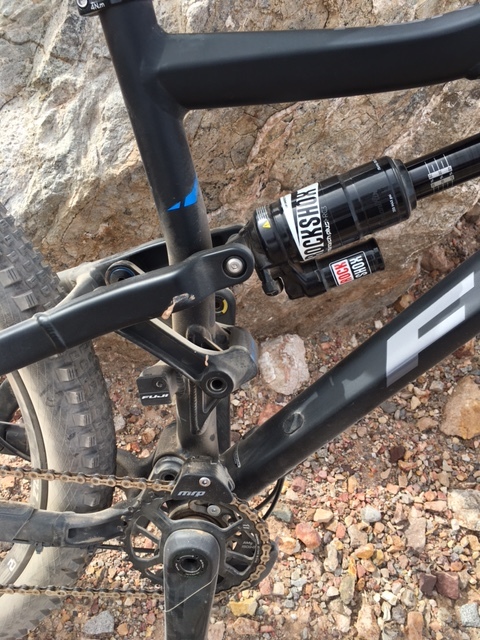I was pleasantly surprised at just how well the Fuji Auric rode. It has a suspension design based on the Breezer Repack that I rode last year (Interbike 2015: Breezer Repack Review) but that suspension design has been refined and works considerably better on the Fuji Auric than it did on the Breezer Repack last year. Though the Fuji Auric is not category leading in Climbing, Descending or Cornering, its all-around abilities will not hold you back in any way.
Climbing – 4 stars
Though not as fast to accelerate as the category leading dw-link suspension designs, the Auric is a more efficient climber than most bikes using a Horst Link suspension design such as the Specialized Enduro.
Descending - 4 stars
When I first got on the Fuji Auric riding on gravel roads and pavement, it felt really tall. I actually got off at the trailhead to verify that I was indeed on 27.5” wheels and not 29ers. Once on the trail though, this feeling of being tall and tippy went away. The Auric felt fairly stable and secure in its descending habits though still leaning more towards an XC/trail personality than that of an enduro race bike.
Cornering - 4 stars
Cornering on the Auric is reasonably quick and precise. During my test ride, its steering was predictable and intuitive which is, surprisingly, better than other bikes that I’ve ridden with more exotic pedigrees.
Summary: Don’t let my 4 star ratings deter you from getting the Auric. Though not category leading in any characteristic, it is quite good all-around. It’s a bike that I would be completely happy riding without any regret about not spending more or getting a more “prestigious” brand name. With a retail price of $3000 to $4700, the Fuji is definitely worthy of consideration especially when cross-shopped against comparable models from Specialized and Trek.
